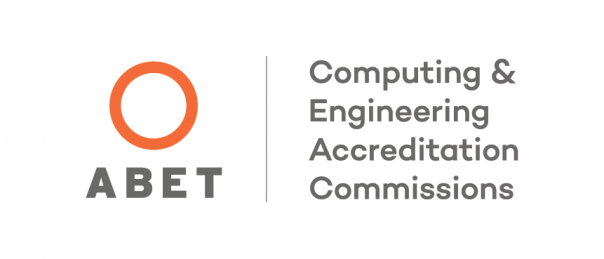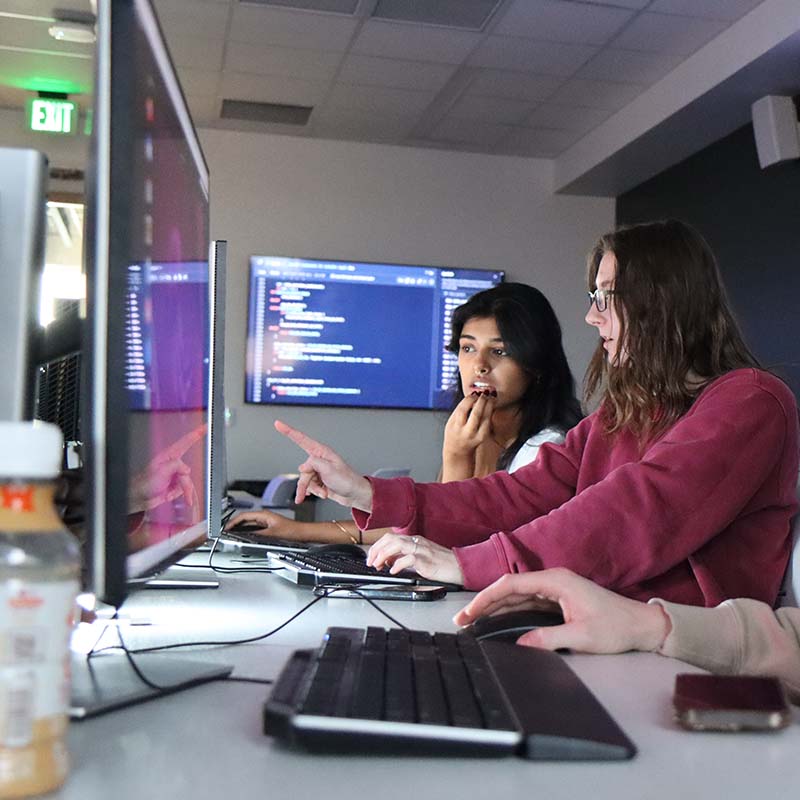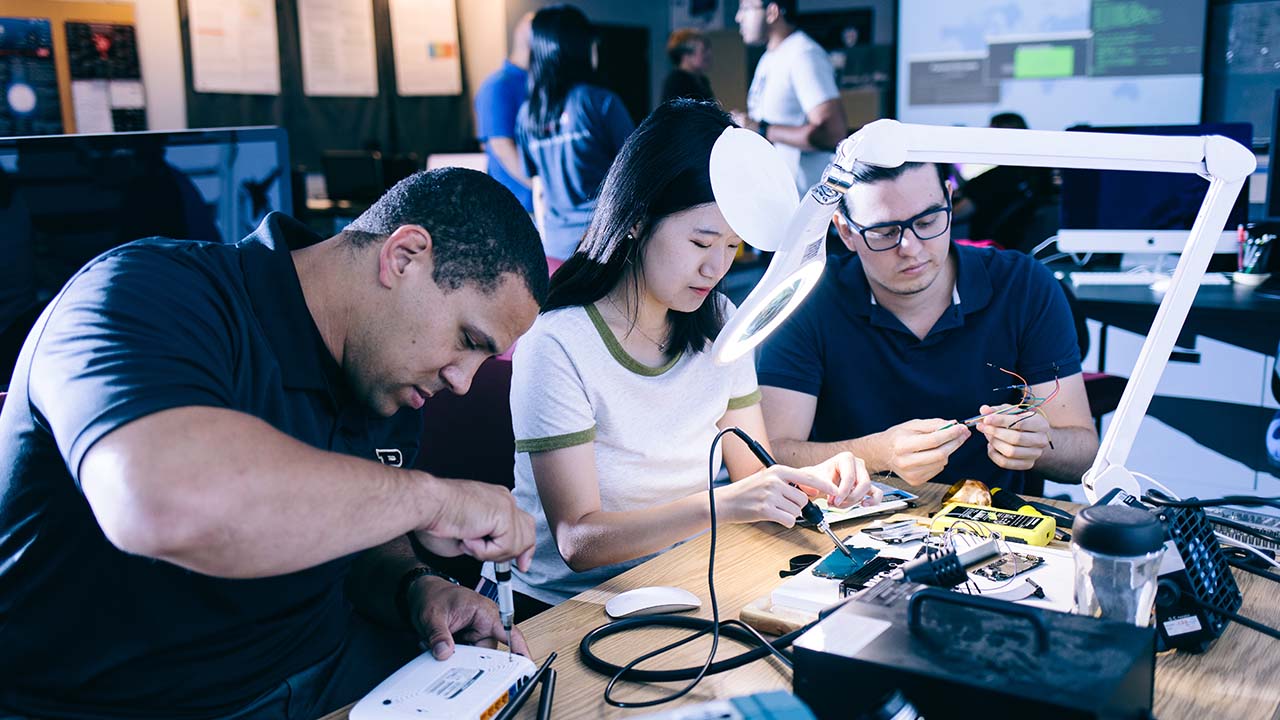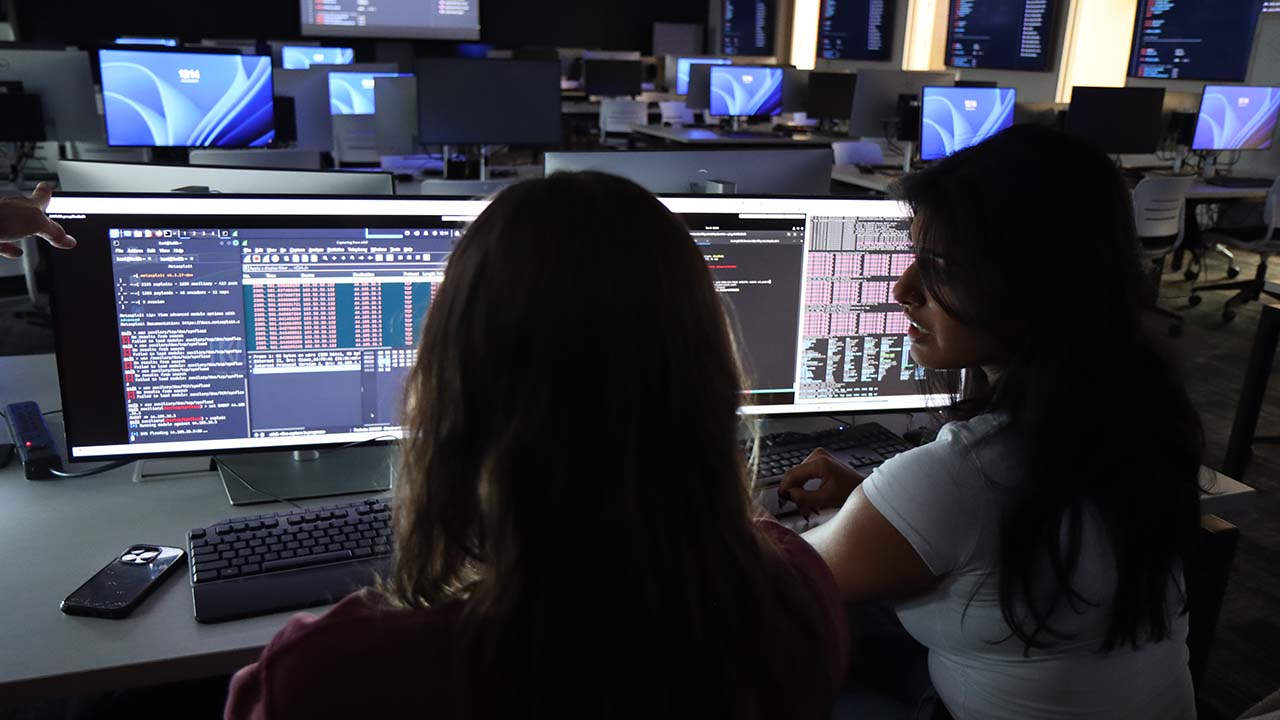Computer and Information Technology
Computer and Information Technology
Empower Your Future with Computer and Information Technology!
Are you passionate about technology and eager to lead in the field of computer and information technology? Purdue University's Computer and Information Technology major offers a dynamic and hands-on educational experience designed to prepare you for a successful career in the IT industry. Our program combines cutting-edge technology, practical skills, and industry insights to ensure you are ready to excel in your professional journey.
In this major, students will build a solid foundation in software development, systems analysis, and database design, learning to write programs, model systems, and manage data. They'll explore system architecture, cybersecurity, and system administration in both physical and virtual environments. Through hands-on projects, students will apply object-oriented programming, manage IT projects, and develop enterprise-level applications, gaining the technical and problem-solving skills needed in modern IT environments.
Why Choose Purdue's Computer and Information Technology Major?
- Innovative Curriculum: Our courses cover a wide range of topics, from software development and cybersecurity to database management and project management.
- Hands-On Learning: Gain practical experience through labs, projects, and real-world applications.
- Industry Connections: Benefit from Purdue's strong ties with leading technology companies.
- Career Opportunities: Explore diverse career paths in software development, system administration, cybersecurity, database management, and more.
Where Can I Study?
- West Lafayette
Launch your career with Purdue's Computer and Information Technology program in a traditional campus environment featuring advanced labs and a vibrant academic community—where hands-on learning meets technological innovation. - Indianapolis
Study the same rigorous major in Indiana’s capital city, benefiting from an urban setting rich in industry connections, experiential learning, and internship opportunities. - Statewide Locations
Earn the same Purdue degree in a smaller, more personalized setting focused on hands-on, career-ready learning while connecting with local industries, and landing strong job opportunities close to home. Learn more here.
Embark on a journey that combines technical expertise, practical skills, and industry knowledge. Purdue University's Computer and Information Technology major is your gateway to a thriving career in the IT industry.
Graduate in three years with this major as part of our Degree in 3 program. An advisor can help explain the course load and necessary requirements to complete your degree a year earlier.
Program Details
Potential Employers
ExxonMobil
Microsoft
JPMorgan Chase
Freddie Mac
Potential Job Titles
IT Support Analyst
App Developer
Tech Support Engineer
Software Developer
Where You'll Learn
 The computer and information technology program is accredited by the Computing Accreditation Commission of ABET, https://www.abet.org, under the commission’s general criteria and program criteria for Information Technology and similarly named computing programs.
The computer and information technology program is accredited by the Computing Accreditation Commission of ABET, https://www.abet.org, under the commission’s general criteria and program criteria for Information Technology and similarly named computing programs.
EVERY GIANT LEAP STARTS WITH ONE SMALL STEP
Course Highlights

Academic Opportunities

Study Abroad
All students in the Purdue Polytechnic can choose to gain an enriched perspective of the global marketplace through a multitude of global experiences that both interest and benefit the student.

Minors
Purdue Polytechnic offers minors that provide unique opportunities to expand your knowledge, broaden your experience and prepare you for success after your time at Purdue.

Student Organizations
Student activities and organizations are a great way to immerse yourself in your chosen path of study. Choose from a variety of interests within the college organizations or university-level programs.










